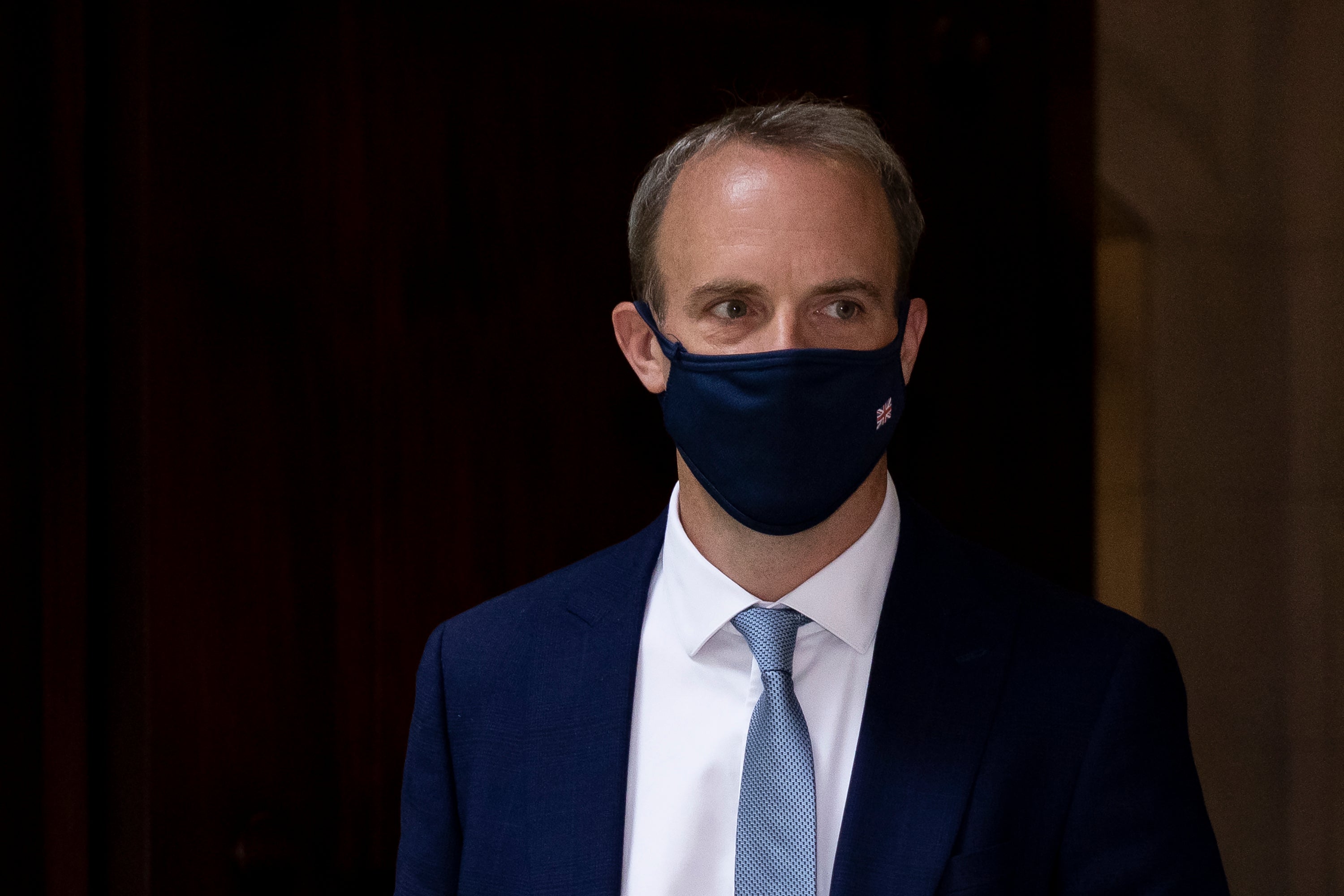Dominic Raab once had a welcoming and caring attitude to asylum seekers – what happened?
It may be that, as a still-ambitious politician near the top of the party, he has to practice the art of the possible – and that means sometimes unpalatable decisions have to made


Obviously there’s a huge focus now on the numbers of Afghan refugees that Britain is honour-bound to accept, and the “bespoke” plan to resettle them so far away from their homes. There is much less talk about what help the refugees might receive once they get to safety. How will they make a living? What about their families who may speak little English, even if one is a skilled interpreter? How can the government and its agencies work together to make this a success behind the initial rescue mission?
Helpfully, the Social Market Foundation, a centre-right leaning think-tank, published a pamphlet a few years ago with some remarkably thoughtful ideas in it. It advocated, funnily enough, a “bespoke” package for each migrant, with support for learning the English language and – a crucial suggestion this – granting each asylum seeker a national insurance number simultaneously with their right to remain.
Employment advice specifically geared to them would also be given – no nonsense about British jobs for British workers.
Here’s what the SMF document said: “Britain has a proud tradition of providing a safe haven for those fleeing persecution from despots and dictators. The number of refugees accepted to Britain is a tiny fraction of overall UK immigration… Yet, starting again for refugees, who may have lost everything, can present major financial, social and cultural challenges.
“The two greatest challenges are often finding work and learning English. These ought to be addressed in order to help some of the most vulnerable in our society, who have fled their homes in fear, stand on their own two feet, take advantage of their new found freedoms in Britain, and climb the ladders of economic and social opportunity on offer.”
All, far-sighted progressively-minded author was a young MP by the name of Dominic Raab, then only recently elected to Parliament and making a name for himself as a creative policy thinker. It’s fascinating, given the damaging coverage he’s currently receiving about not being bothered to pick up the phone to his Afghan counterpart, we should at least give him the credit, if surprising, that he once had such an unusually welcoming and caring attitude to asylum-seekers.
In his younger, pamphleteering days, Raab had no sympathy for caps and quotas on refugees; or locking them away in forced idleness. Rather than taking the usual hostile stance of ambitious members of his party, as a Conservative Raab was brave enough to argue that “once their status has been confirmed, refugees ought to be given bespoke support to find work, so they do not slip into welfare dependency.”
He decried as a false economy the closure of the Refugee Integration and Employment Service (RIES) which used to help refugees with benefits claims, social services, housing, employment advice and wider social mentoring. The RIES was axed in home office cuts by Theresa May, as it happens.
‘The Meritocrat’s Manifesto’, as it was called, was Raab’s attempt to meld a compassionate Conservatism with traditional Tory values, with some bold ideas in it. Makes perfect sense, all that, and it might well have been informed by his own family experience. His father was a child refugee from Czechoslovakia and Nazi persecution before the Second World War, something that must still impinge on the foreign secretary’s consciousness, though not as much as we might wish.
It may be that, as a still-ambitious politician near the top of the party, he has to practice the art of the possible – and that means sometimes unpalatable decisions have to made. It could also be that he shares the hard-headed view expressed by his ally the defence secretary, Ben Wallace, that any call with any Afghan minister last week about help for Afghan interpreters and the like would have been futile.
He might also have been better off not pretending that “no one saw this coming”. In any case, as it stands today, though, his carelessness and misjudgement of the situation has cost his career dear. Raab needs to do some more thinking.

Join our commenting forum
Join thought-provoking conversations, follow other Independent readers and see their replies